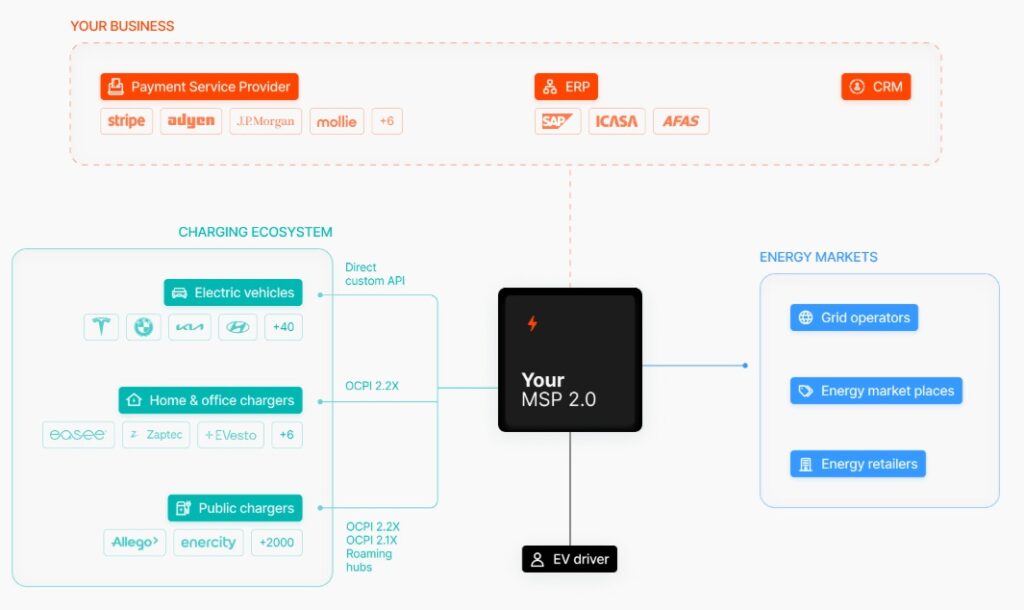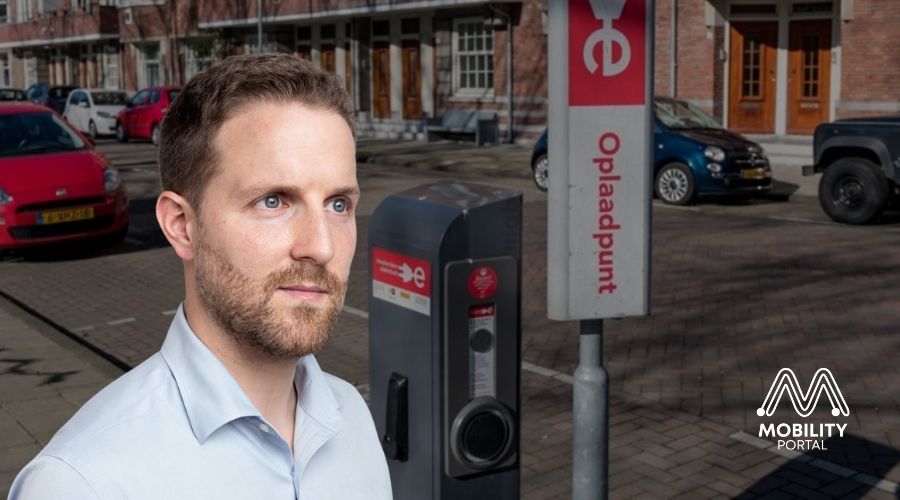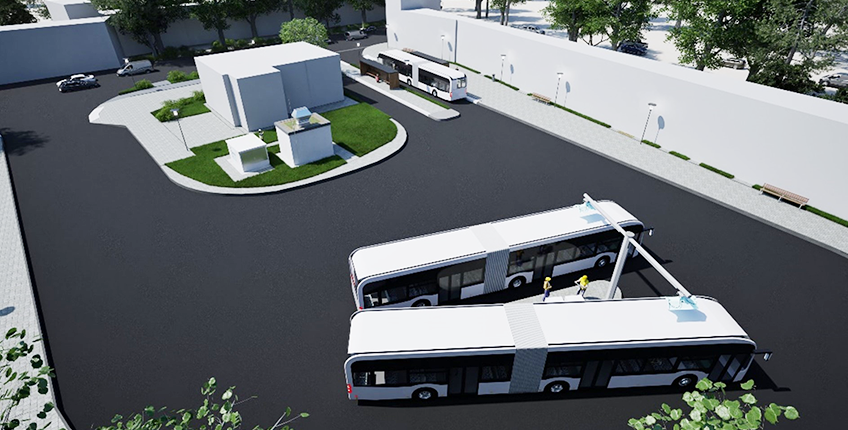At the end of March, the City of Amsterdam launched a smart charging pilot programme aimed at optimising electricity grid usage and preventing demand peaks by shifting charging sessions to off-peak hours. At the same time, the scheme offers financial incentives to electric vehicle (EV) users.
The initiative is a collaboration between the municipality, charge point operator (CPO) Equans, the charging service platform Deftpower, and the mobility service provider (MSP) ANWB.
“What’s truly unique is that this is public charging, and it’s interoperable. We have multiple MSPs connected to multiple CPOs,” explains Michael Johanns, Business Development Smart Charging at Deftpower, in conversation with Mobility Portal.

He also reveals that agreements have already been signed with three additional operators, who are expected to join the project soon.
The scheme enables several MSPs to work with multiple public CPOs, establishing a smart charging model that rewards drivers through a cashback incentive system.
“Both the interoperability and the cashback system are unique in the market. And we have a team fully dedicated to scaling this initiative,” Johanns highlights.
Although the pilot is currently focused on the Netherlands, Deftpower is already planning for expansion.
One of its clients, based in Germany, is soon joining the project in autumn.
“We are working with them to determine the best way to implement the solution,” the executive adds.
Meanwhile, another client is expected to join under a similar concept, but applied to residential charging contracts, further expanding the initiative’s reach.
Deftpower as a direct channel to EV drivers
One of the biggest challenges for CPOs is establishing direct communication with users. This is where Deftpower offers a unique solution.
The platform works particularly with operators managing slow (AC) charging stations, as long as they hold a dynamic energy contract and are willing to share the benefits of optimisation with drivers.
“They also need to be open to working with third parties that hold the direct contract with the user. This is different from the traditional approach, where CPOs prefer to retain that control themselves,” explains Johanns.
“We offer an alternative: our clients hold the contracts, they manage the chargers, and we collaborate in an equal partnership,” he adds.
The real issue Deftpower helps solve is access to the driver.
“For operators, the biggest problem is their lack of a direct communication channel with EV drivers. They don’t know the state of charge, when vehicles will leave, or how to get consent from users to take part in flexibility programs at scale. That’s where Deftpower comes in to help bridging the gap between CPOs, MSPs and the driver,” the executive states.
He continues: “Flexibility belongs to the driver. Therefore, the driver must be part of the equation. You can’t just control the station and expect the user to live with the outcome.”
In this context, designing a user-friendly interface is key to encouraging driver engagement and participation.
Relationships with grid operators and traders: work in progress
Beyond its work with CPOs, Deftpower is also looking to build partnerships with grid operators and energy traders.
However, the company faces structural and regulatory barriers in doing so.
“Grid operators still don’t have mechanisms in place to pay for flexibility, nor are they willing to do so — they get paid on installing new assets and unfortunately not on running them efficiently,” Johanns explains.
“Some countries like the United Kingdom (UK) are already changing this concept and we hope that many other countries will follow in the near future,” he adds,
On the side of traders and utilities, the challenges are different:
“Sometimes it’s hard because the regulation demands a contract with each balance responsible party, and then the traders would like to see bigger volumes. A typical chicken-egg problem,” the executive indicates.
These barriers limit progress towards a model in which EV flexibility can become a valuable and manageable asset within Europe’s electricity system.
A user-centred platform
Founded in 2020, Deftpower operates a SaaS platform aimed at charging card providers, enabling them to deliver smart charging solutions for EV users.
The company currently employs more than 70 staff and runs on a white-label model.
This allows well-known brands such as ANWB, Athlon or Edenred/UTA to offer their own branded charging cards and apps, powered by Deftpower’s technology.
One of the platform’s standout features is the direct integration of smart charging functions within its partners’ public charging apps — avoiding the need for separate applications.
The newest release comes with an AI forecasted departure time, reducing even further the user interaction barrier for smart charging.
This solution provides users with access to over one million stations across Europe, operated by more than 2,000 CPOs.
The focus, once again, is firmly on the driver.
All technologies and services are designed to simplify the charging process, enhance the overall experience, and position the user as an active player in the energy ecosystem.

READ MORE
-
From Amsterdam to the rest of Europe: smart public charging with incentives plans expansion
Both the interoperability and the cashback system are unique in the market — and a dedicated team is already working to scale this smart charging initiative.
-
EU Parliament backs extension of toll exemption for zero-emission trucks
Manufacturers must reduce the average emissions of new trucks, interurban buses and coaches by 45%, requiring around 400,000 zero-emission heavy-duty vehicles to be in operation by that year.
-
BVG to establish a network of up to 20 rapid charging stations for e-buses in Germany
BVG is investing in modern infrastructure that makes charging buses more practical for everyday operations. The Federal Ministry of Transport is supporting this with €12.1 million.









